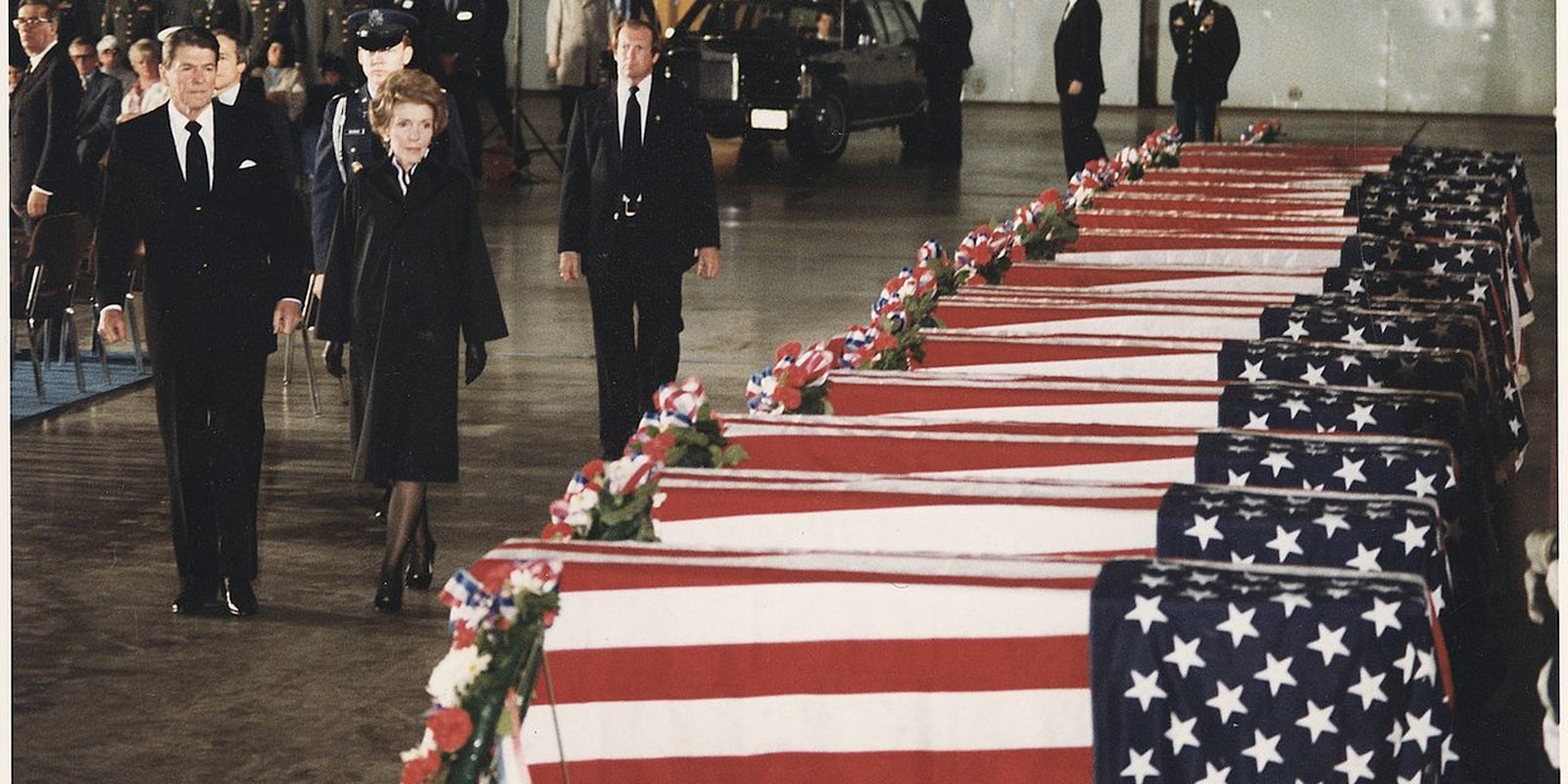The Central Intelligence Agency (CIA) has released hundreds of declassified documents to its Freedom of Information Act site. But one of them stands out—not for the secrets it contains, but for its raw emotions.
The “Beirut Diary” sits among countless newly declassified articles from the CIA’s in-house spycraft journal, “Studies in Intelligence.” The faux-diary entry is an emotionally charged account of the bombing that rocked the U.S Embassy in the Lebanese capital on April 18, 1983, claiming the lives of 64, including eight CIA employees.
With titles including “Bestiary of Intelligence Writing, and “How we are Perceived,” most of the newly declassified articles on the CIA’s Freedom of Information Act (FOIA) site are snarky, gossipy, entitled, or thick with redactions and legalese—which is precisely why the harrowing personal testimony of “Beirut Dairy” stands out.
“This is not, repeat not, a trip report. For whatever they may be worth, these are the blurred and confused impressions that remain after one of the most turbulent weeks I shall ever spend, the week that began Monday, 18 April 1983. I have tried to be accurate. Although I know the events I have recounted here did take place, it is hard to fix a time or a day for theme now, as I sit in a safe place on my way home, writing it down.”
Repeated attacks on U.S. personnel during Lebanon’s cataclysmic civil war led the U.S. to eventually close its embassy and pull its military out of Lebanon entirely. U.S. General Colin Powell infamously lamented, “Beirut wasn’t sensible and it never did serve a purpose. It was goofy from the beginning.”
Although “Beirut Diary” is declassified, it’s redacted to conceal the author’s identity and those of individuals who feature in the stark, sometimes bizarre, descriptions of the bombing and its chaotic aftermath:
“At 1500, as we are finishing an elaborate lunch, our hostess tells us there has been an explosion at the Embassy. She has known for an hour and a half, but hadn’t wanted to ruin our lunch.”
In one of the article’s more troubling moments, the narrator of “Beirut Diary” captures the bitter disillusionment of an American military officer immediately after the bombing:
“I go back to the site and watch the hardhats cut away floors from the center section. I find the young officer who had given me a long tour of our Military Assistance Unit the previous week. He is bitterly disillusioned, saying that he and his men had come here John Wayne-style, believing that they could save Lebanon, only to find themselves being shot at by the Israelis and bombed by the Arabs. He is of the opinion that we should withdraw and let the people here fight it out among themselves. ‘They deserve each other.’”
The introduction to the declassified cache asserts: “The documents reveal the CIA’s place in conducting U.S. foreign policy. The Agency cannot plan or act today without being influenced in some way by its collective past or the historical experiences that these documents describe.”
With U.S. military operations more vigorous and more controversial than ever, it’s worth wondering what impact “Beirut Diary” could be having on U.S. foreign policy today.
Read the full ‘Beirut Diary’ below:
Photo via White House Photographic Office/Wikimedia Commons (Public Domain)

